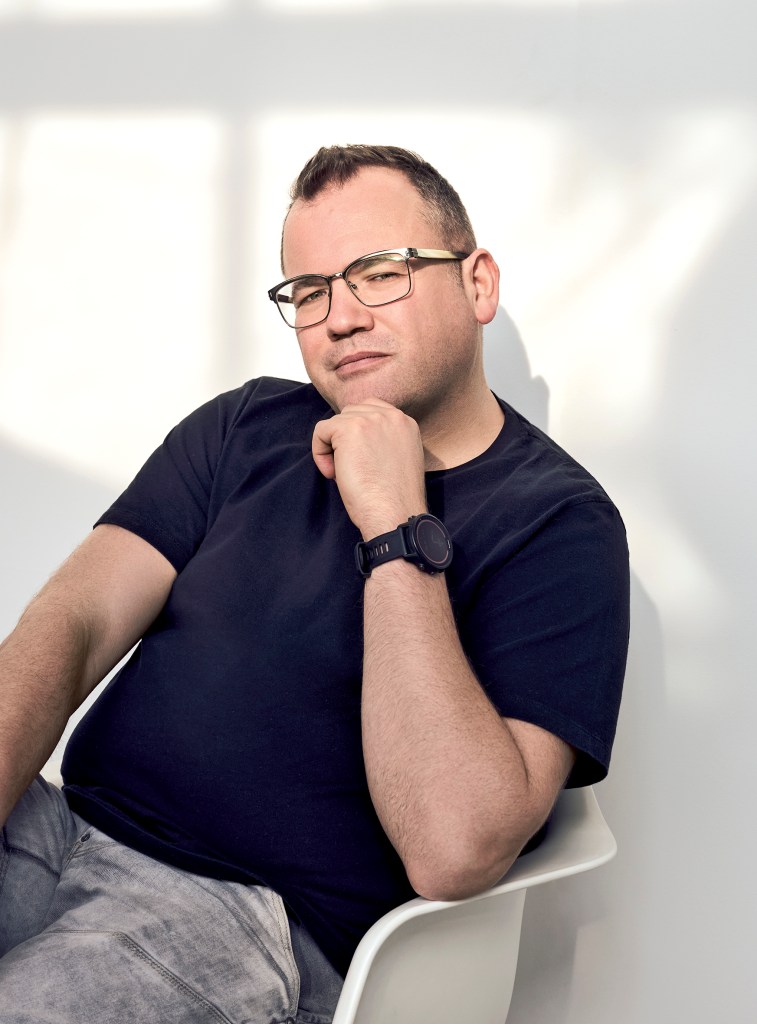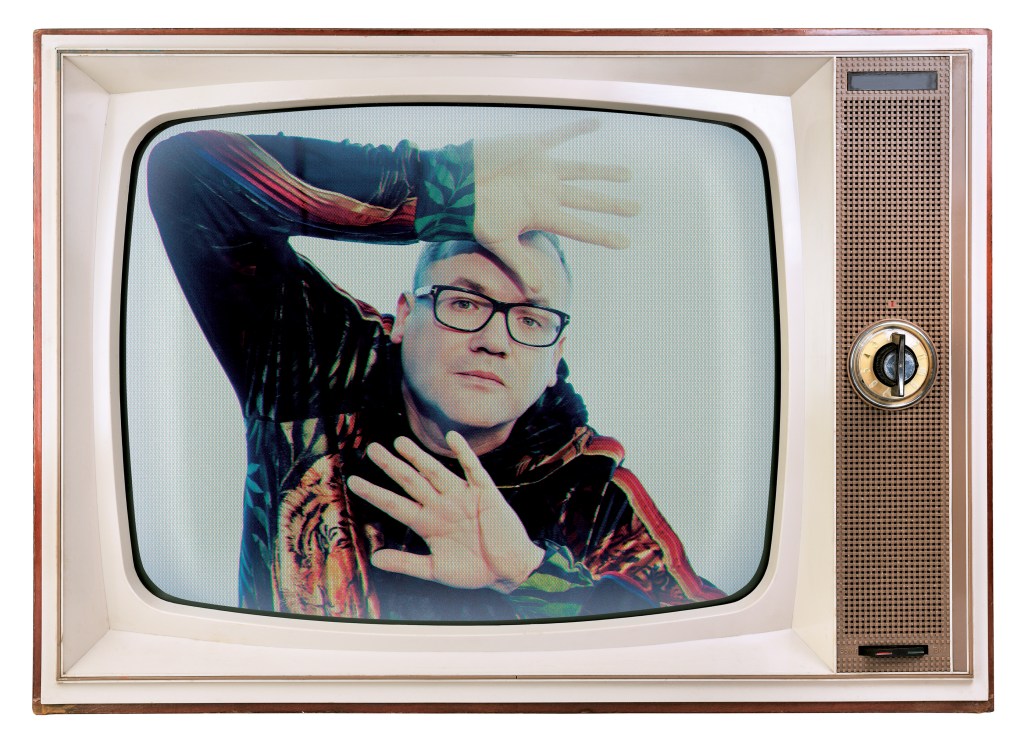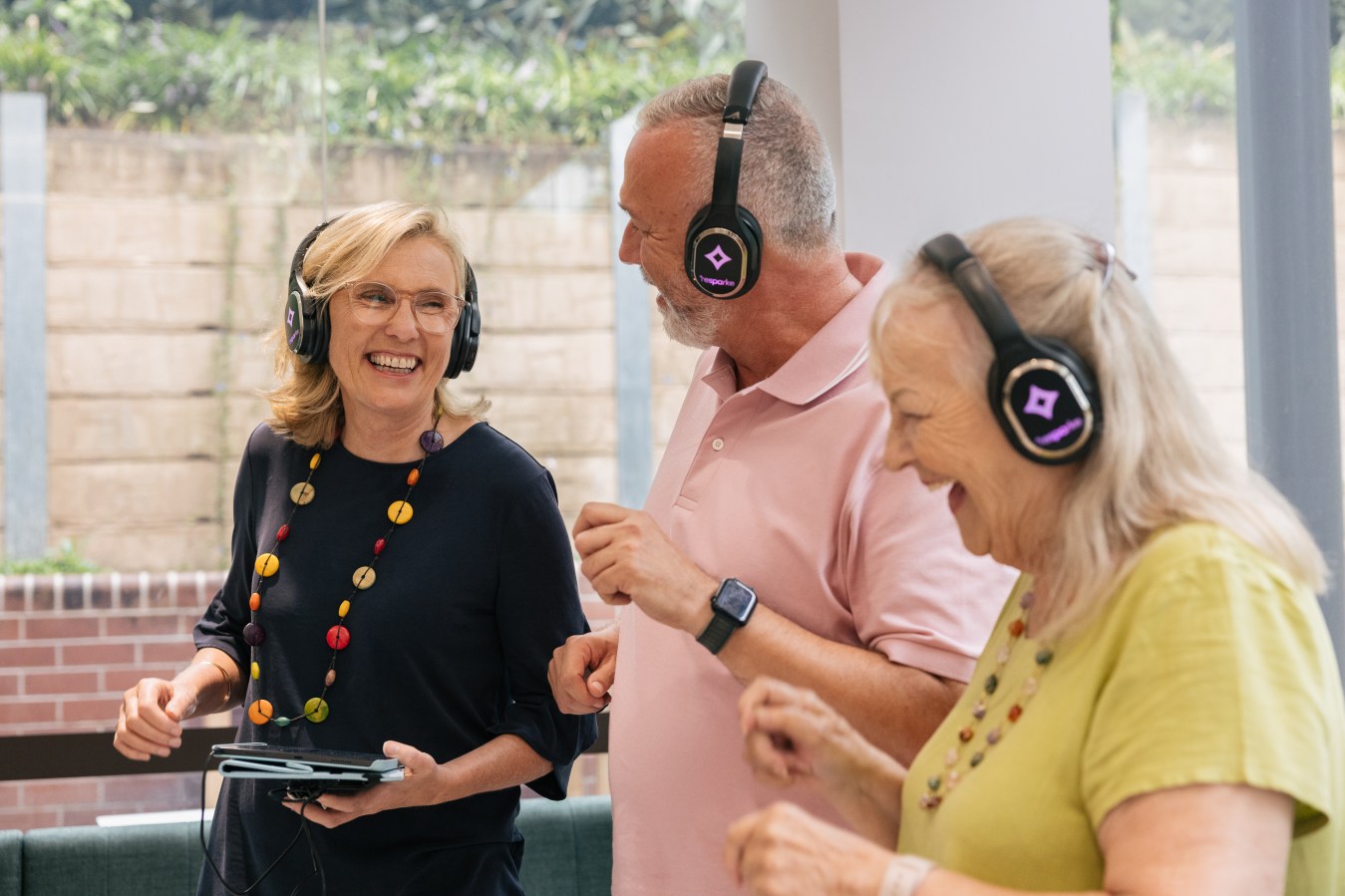If there was ever a case for entrepreneurs being born and not made, Ruslan Kogan is it. He talks exclusively to Forbes Australia about his journey from being a migrant kid in housing commission flats in Melbourne to one of the country’s most successful tech entrepreneurs.

At the age of six, for example, he discovered that every time he lost a tooth, the Tooth Fairy would come and leave him a coin – a favourable commercial transaction, he thought.
Most children would happily wait the months or years it would take for another tooth to become wobbly and eventually fall out, but not Kogan. Days after losing his first tooth, Kogan’s mother caught him and his cousin tying strings around all their teeth, ready to pull out all their baby teeth in a bid to “get rich”.
“It was the only time I’d ever seen that commercial transaction. It was like, ‘Hey, if you leave a tooth under a pillow, you wake up, and there’s two bucks under your pillow’,” Kogan explains. “I saw that my parents would just pursue opportunities and take risks and work really hard. And somehow that translated to: ‘I wouldn’t mind ripping a tooth out,’ because I saw that that gets you two bucks.”
Kogan went on to build several businesses as a child, from selling old golf balls back to wealthy golfers at a nearby club to eventually building a website design business in his senior years of secondary school at Melbourne High School. In 2007, he landed on an idea to sell discounted electronics that eventually became the ASX-listed company, Kogan – a company that has seen him amass a small fortune. ($575 million at the last valuation in 2020, Kogan declined to comment on his wealth for this piece.)
Today, few leaders in the Australian tech and retail sectors can claim the kind of unconventional success that Kogan can. He led Kogan through its most rapid period of growth in 2020, followed by a dramatic crash spurred by the over-ordering of inventory during COVID lockdowns.
The company – which has some prominent names in Australian business on its board, from Boost Juice’s Janine Ellis to serial entrepreneur James Spenceley – initially experienced record sales during the pandemic and subsequent lockdowns.
While people rushed to buy computers, televisions and masks, Kogan was one of the few suppliers able to continue sourcing products from China after international boarders closed during the pandemic.
But the success of the company – a marketplace for everything from consumer electronics to mobile phone plans, insurance and energy, was short-lived. When the pandemic began in March 2020, Kogan says the company he founded thrived, outperforming its competitors as its sourcing team “scoured the globe for masks, and sanitiser, and monitors, keyboards, and laptops”.
“We went absolutely crazy with our sales, with the performance of our business. We did better than anyone for about six to nine months there,” he says.
Kogan says for the first part of the pandemic, the company performed “with one hand behind its back” as inventory pressures made it difficult to keep up with customer demand for products. Its solution was to quadruple its inventory – a decision Kogan says was based on several factors, including information around the length of time it would take to develop a COVID vaccine and how long people would remain in lockdown.
“We were like: ‘We have millions of Australians relying on us for all the items they need while in
lockdown. We ran out of warehousing space. We went from 13 warehouses to 38 in a matter of a few months,” he says.
When vaccines were released, and the lockdowns eased, Kogan found it had substantial levels of excess stock. “Sales did not stay at the level we thought they would stay, which meant we had to start massively discounting all that inventory to clear it.”
“We ran very inefficiently for over a year there. And now we’ve cleared that inventory,” he says. “And we’re back to running a high-quality business looking after our customers better than ever.”
In hindsight, Kogan says, “Of course, things would be done differently.” But based on the information the company had at its disposal at the time, Kogan says the same decisions would have probably been made if he had his time over. Today, he says he worries “very little about the business”. Instead, he says, having a proactive culture of taking action before issues arise is a more effective way to handle challenges.
“We’re very action-driven because worrying – it’s probably dangerous. It’s just so much negative energy, and it can cause you to make the wrong decisions. So, we try and always separate the emotion of a situation from the – what are the metrics? What are the numbers? What are the action items?”
Kogan claims that the company is a “far better business today” than it was at the height of its success during the pandemic. He says that the current economic environment – where customers are being more frugal with their shopping habits and seeking out cheaper prices – is an opportunity for Kogan to continue to improve its sales.
“I’m not the fluffy CEO who can give a big motivational speech.”
Ruslan Kogan on his leadership style.
“Our sales may have been bigger, and our growth was faster back then, but in business, you make lots of decisions. You make lots of mistakes. Good businesses get far more decisions right than they get wrong, which is what we do, but we do get some wrong. Learning from your mistakes, implementing measures, checks and balances, and systems and processes to ensure those mistakes never happen again makes you a much stronger business.”
Post COVID, the company is taking time to recover from the impact of its inventory miscalculations and subsequent discounting of stock. Gross sales for the first half of 2023 were $471.1 million, down 32% year on year – a drop the company said was largely due to the “cycling” of COVID-19 related lockdown orders and subdued sales for the company. Its share price fell from a peak of $24.75 in October 2020 to around $2.70 in July 2022. At the time of publication, Kogan shares had risen to around $6.00.
A decade ago, the company focused entirely on consumer electronics. It was entirely inventory based, and its easy-to-use online shopping network, combined with competitive pricing, led to rapid growth. Kogan says the company’s next growth phase was using its extensive customer base to “go out and negotiate – really good deals across lots of things”.
“[We said] we have this world customer base. We won’t have to spend money on marketing. Let’s reinvest that [money] in a sharp offer for our customers. And out of that, we can create a mobile offering that’s the best value in the country.”
Kogan has established thousands of agreements with different sellers, expanding its marketplace range to 30 million products. While Kogan-branded products are held at Kogan’s warehouses, inventory from third-party providers is often held at other sites.
Its next growth phase will focus on its paid subscription business, Kogan First, which focuses on providing deals to around 400,000 of its “most active, most loyal customers,” Kogan says.

“I say to staff… next time you’re at the MCG, if it’s a fully packed stadium, take a look around and go take this number of people, multiply it by four. That’s how many people have decided to become a Kogan First member,” he says. “I like staff to do things like that, as well as going to our factories because sitting behind a computer screen, it’s hard to gauge the size of our customer base.”
People matter
Hiring and retaining employees, especially in the tech space, is a big challenge for the company, Kogan says.
He says while the company has grown significantly over almost 20 years, around a dozen of its key contributors have worked for the business for over a decade.
“It’s one of the greatest things that I love about my job is that I get to jump out of bed every morning, drive here and work with the best minds in e-commerce in Australia. I’ve worked with a lot of these people for many years, and I love coming to work every day and seeing them.”
He says people are at the heart of Kogan’s success or failure. He says the company has an open dialogue between all employees, irrespective of their job titles.
“We have an internal mantra that there is always a better way. So, everything in our operation is up for questioning and debate. We may have a really good way to do something today, but that’s just the best way we’ve come up with until now. And there is a better way to do it. In 10 years, it will change.”
“Whoever you are, your idea is valid and will be heard and debated based on merit. So, there’s no such thing in our organisation [of] that: ‘Oh, we’re going to do that because Ruslan said to.’ Because I’m wrong a lot of the time. I’ve got ideas, and I think something will work, but I can be wrong!”
“We’ve got a very diverse team because there’s people from all sorts of backgrounds who have exposure to different communities, different learnings, different experiences, and so on.”
From communism to entrepreneurialism
Kogan spent the early part of his childhood in communist Belarus before immigrating with his parents to Melbourne. Neither of his parents was business-minded -however, they did have an appetite for taking calculated risks.
“I’d say what it takes to be an immigrant and an entrepreneur is the same,” he says. “So, me growing up and seeing them take a massive risk to come to Australia, to work their butt off, to work three to four jobs each, for the potential benefit that might not even be there, that to me is entrepreneurial.”
Kogan founded the business that shares his surname in 2007 using credit cards and pre-orders to fund the first shipments of electronics from China. His first orders were pre-orders on eBay, with auction prices starting with a 1-cent reserve. At the time, he was working at Accenture but wasn’t enjoying corporate life. He quit his job soon after fulfilling his first pre-order shipment – which was mostly plasma-screen televisions.
It didn’t take long for Kogan to earn a reputation as a disruptor in a then-very
conservative, bricks-and-mortar retail industry. He was regularly quoted in the media for challenging the models of brick-and-mortar retailers such as Gerry Harvey and Dick Smith (who he ironically purchased the online business, data and brands from in 2016).
“When I started kogan.com in 2006, we were the primary voice for e-commerce in the country. And finally, we have validation from our bigger retailers that e-commerce is real,” Kogan says. “But we didn’t have validation for when we were the primary voice. Some of them were saying it was not real.”
Kogan is married to Melbourne Opera board member Anastasia Fai Kogan, and together they share a daughter (with another baby on the way). Being a father has led him to focus on the values and the legacy he would like to provide to his family.
“I actively think about how to be a good father and [what] values I want to instil. How do I lead by example, and what can I teach my daughter?”
Kogan says Fai Kogan encourages him to put away his phone – a tough habit to break when you run an e-business, he says – and engage with his family. The pair have a “no technology” rule for their daughter – except for FaceTime with grandparents. The irony of stopping his child using technology despite owning a tech and electronics business is not lost on him.
“When I see kids out for dinner with their family…and the kids have just got their face stuck in the iPad, I would say that is technology failing us, that is not a good thing being achieved by technology,” he says.
In terms of his management style, Kogan says he’s not the warm and fuzzy kind of leader. “I’m not the fluffy CEO who can give a big motivational speech or tell everyone how lovely things are. I’m more the CEO that could get up and go, ‘All right, here are things that are f**ked. We need to fix them asap’,” he says.
Another passion for Kogan is supporting and mentoring tech startups. He says he received little to no support or funding for his business when it began in 2007, and people told him his idea would fail.
“Our very first capital raise was at our IPO 10 years on [after startup]. I think it’s important because I think that businesses drive an economy.”
Today through his family office, Kogan invests in around 12 tech startups. He also speaks at school and tech events to encourage new players to the market.
“When I’m asked to speak at entrepreneur conferences and things like that, I’m like: ‘alright, I’ll do it.’ Because, yes, it takes up my time. But if you can inspire one person to take the next step and go, “Oh, I’m going to give that a crack. Ruslan can do it.”
“You don’t need to be from a family that’s previously had businesses or has lots of money. You can do it yourself.”
Look back on the week that was with hand-picked articles from Australia and around the world. Sign up to the Forbes Australia newsletter here



